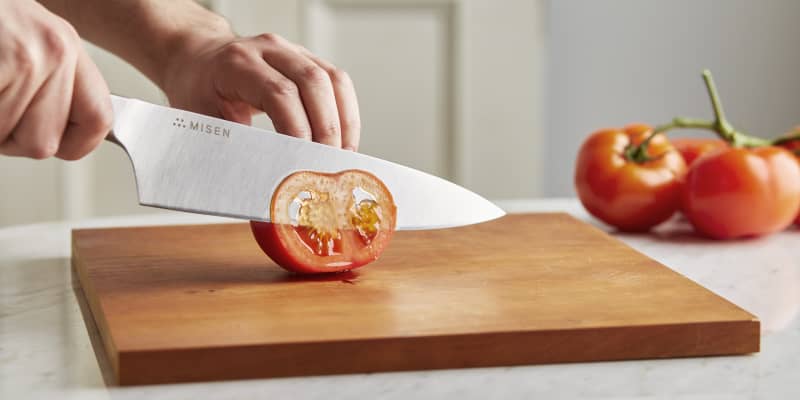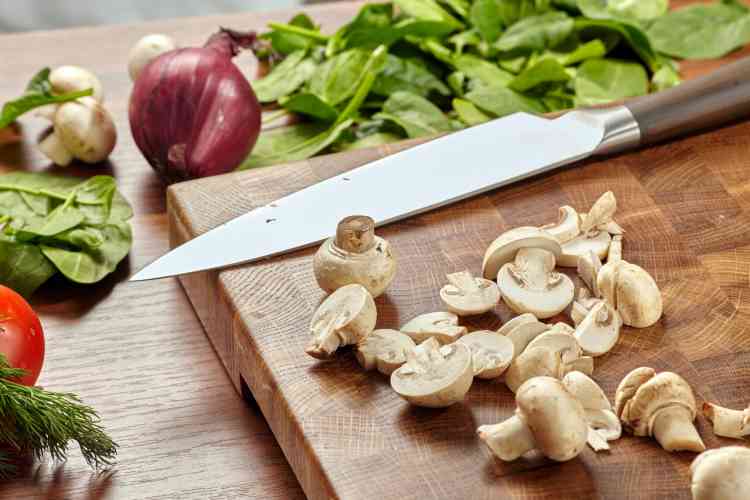In the world of culinary arts, the importance of having the right tools cannot be overstated. For kitchen professionals, the choice of a knife can make all the difference in terms of performance and ease of use. German knives for small hands are specifically designed to offer precision and comfort to those with smaller hand sizes. These knives are not just about compactness; they are about maintaining the superior quality and craftsmanship that German knives are renowned for.
In this comprehensive guide, we will delve into why German knives are a great fit for small hands, the benefits they offer, and how they compare to other types of knives. Whether you're a seasoned chef or a budding culinary enthusiast, understanding the nuances of these knives will enhance your culinary experience.

Understanding the Craftsmanship of German Knives
German knife-making is steeped in a rich history of craftsmanship and innovation. The town of Solingen, often referred to as the 'knife capital of the world,' is at the heart of this legacy. Known for its high-quality steel, Solingen has been producing some of the world's finest knives for centuries. The precision in crafting these knives ensures they are razor-sharp, durable, and perfectly balanced, making them ideal for kitchen professionals.
For those interested in the history behind these iconic tools, this article provides a fascinating insight into the origins of German knife-making.
Features of German Knives for Small Hands
When it comes to German knives for small hands, several features stand out:
- Ergonomic Design: These knives are designed with smaller handles that fit comfortably in smaller hands, reducing strain and increasing control.
- High-Quality Steel: German knives are typically made from high-carbon stainless steel, providing superior sharpness and edge retention.
- Balance and Weight: The balance between the blade and handle ensures precision in cutting, which is particularly beneficial for intricate tasks.
Comparing German and Japanese Knives
While German knives are known for their durability and balanced weight, Japanese knives are celebrated for their lightness and razor-sharp edges. Kitchen professionals often debate the merits of each, but for those with smaller hands, the ergonomic design of German knives may offer an advantage. To explore the differences between these two types of knives further, check out this detailed comparison.
Choosing the Right German Knife
Selecting the right German knife involves considering several factors:
Blade Shape and Size
For small hands, opting for a knife with a shorter blade can enhance control and precision. Chef's knives with an 8-inch blade are popular, but those with smaller hands might prefer a 6-inch version for better maneuverability.
Handle Material
Handles come in various materials, including wood, plastic, and composite. Wooden handles offer a traditional feel, while composite materials provide durability and grip. If you're curious about different handle options, you can find more information here.
Brand Considerations
Several brands are synonymous with high-quality German knives. Wsthof and Zwilling J.A. Henckels are among the most reputable, known for their commitment to excellence and innovation in knife manufacturing. For a brand comparison, visit this link.
Maintaining Your German Knives
Proper maintenance is crucial to extend the lifespan of your knives. Regular honing and occasional sharpening will keep the blade in top condition. It's also important to hand wash and dry your knives immediately after use to prevent corrosion.
Storage Solutions
Storing your knives correctly is essential to maintain their edge. Knife blocks, magnetic strips, or blade guards are all effective storage options that protect the blade and ensure safety in the kitchen.
Conclusion: Elevate Your Culinary Experience
For kitchen professionals with smaller hands, investing in a high-quality German knife can significantly enhance your culinary skills and experience. With their ergonomic designs, superior craftsmanship, and excellent balance, these knives offer a perfect blend of comfort and precision. Whether you're slicing, dicing, or chopping, a German knife designed for small hands will be a valuable addition to your kitchen toolkit.
As you explore the world of knives, remember that the right choice can transform your cooking process, making it more enjoyable and efficient. Dive into the world of German knives and discover the difference they can make.

FAQ
Are German knives better for small hands compared to other brands?
German knives are particularly well-suited for small hands due to their ergonomic design and balanced weight, making them a comfortable choice for intricate kitchen tasks.
What makes German knives durable?
German knives are typically made from high-carbon stainless steel, which offers excellent edge retention and resistance to corrosion, contributing to their durability.
How often should I sharpen my German knives?
Regular honing can maintain the sharpness of your knives, but they should be professionally sharpened every 6 to 12 months, depending on usage.


























